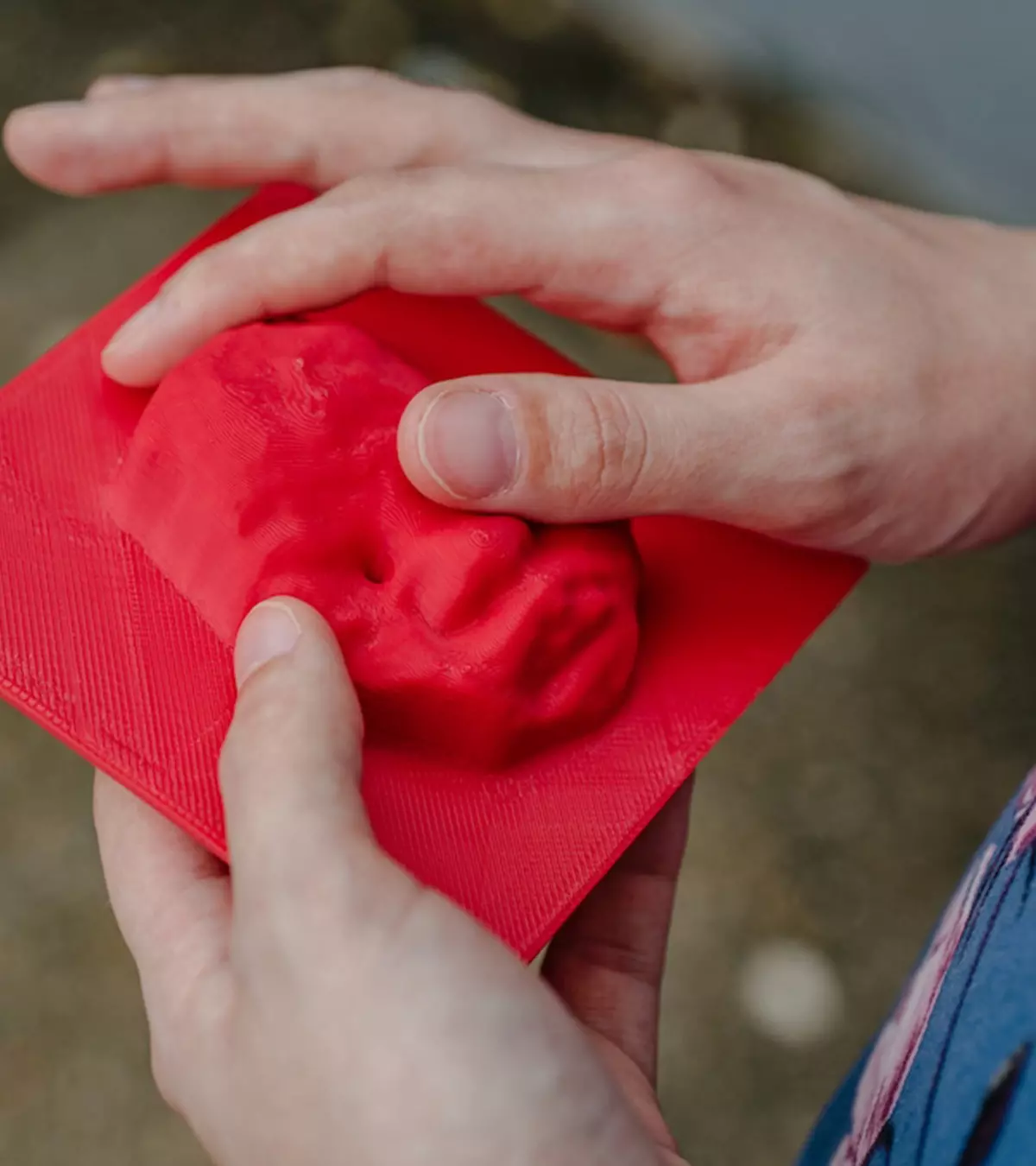

Image: Shutterstock
Babies grow super fast. One minute they are as tiny as your forearm, and the next thing you know, they are crawling all over your house and getting into every little space. The transition happens way too quickly, and if you’re a parent with a newborn, you’ll probably agree. While it makes you sad sometimes that your little one is growing up too fast, you are probably eager to watch them cross several milestones. After your baby is born, what you look forward to the most is their many firsts. The first time they sit, crawl, or stand are moments that you will always cherish. But as your baby starts moving more, you’ll have to begin paying more attention to them. Once your baby hits the 6-month mark, you have to plan a visit to the pediatrician to know what the next steps are. So here’s everything you need to know:
How To Prepare For The Visit?
Image: Shutterstock
It might be scary to take your baby to the pediatrician, but it’s an essential step. Make sure you have all the medical documents and vaccination cards that you’ll need for your baby’s visit. Also, be prepared to consult the pediatrician for some pain-relieving medications for your baby because they will most likely be in pain and might even have a fever and some swelling after some vaccination shots. It’s normal for your baby’s body to react this way, and there’s probably nothing to worry about. You can also carry some milk and their favorite toy with you to comfort them while getting the shots.
What The Doctor Might Ask
Image: Shutterstock
There are some milestones your baby should have crossed by the time they are six months old. The pediatrician will most likely ask you some questions that you should be prepared to answer. Here are some of the most common questions that your baby’s doctor might ask:
- Has your baby started rolling over? Have they started sitting by themselves?
- Does your baby react to you when you call them?
- Is your baby active, and have they started reaching out and grabbing things?
- Does your baby have any teeth? If yes, how many?
- Has your baby suffered from any illnesses or diseases recently?
- Has your baby started reacting to things?
You would know the answers to most of these questions just by observing your baby daily. You’ll know what they do and what they do not. So, don’t worry and be honest and open with the pediatrician.
What Does The Check Up Include?
Image: Shutterstock
The 6-month checkup usually includes all regular and routine developmental tests. Scroll below to know some of the things you should be looking for:
- Height And Weight
The doctor measures your baby’s height and weight to record it in their growth chart. It helps determine how much your baby has developed as compared to other kids their age. However, every kid develops differently, and there is no need to worry if there are variations in measurements.
- Heart And Lungs
The doctor checks the heart rate and breathing for any signs of abnormalities. Babies’ hearts usually beat faster, and they tend to breathe faster and take shorter breaths.
- Eyes And Ears
The doctor checks the eye for blocked tear ducts or any possible discharge or infection and checks the ears to observe your baby’s reaction to sounds.
- Head
Babies have soft spots on their heads which may be affected by dehydration. The doctor checks the soft spots (fontanelles) for signs of flat spot development.
Image: Shutterstock
- Stomach
You will notice that your doctor gently presses your baby’s abdomen to check for any signs of hernia, growth, or stomach problems.
- Genitals
Genitals are sensitive areas prone to infections. The doctor examines the genitals for signs of infection or rashes caused due to diapers.
- Whole Body
The baby’s overall growth is important, so the doctor observes your baby’s motor skills and muscle functioning ability.
While these are the standard checks that a doctor conducts, don’t worry if your baby is not doing exactly like other babies. Every child has their own pace of development, and as long as there are no health issues, a slight delay in development is nothing to worry about. Has your baby gone for their 6-month checkup yet? Comment below and let us know.
Community Experiences
Join the conversation and become a part of our nurturing community! Share your stories, experiences, and insights to connect with fellow parents.















